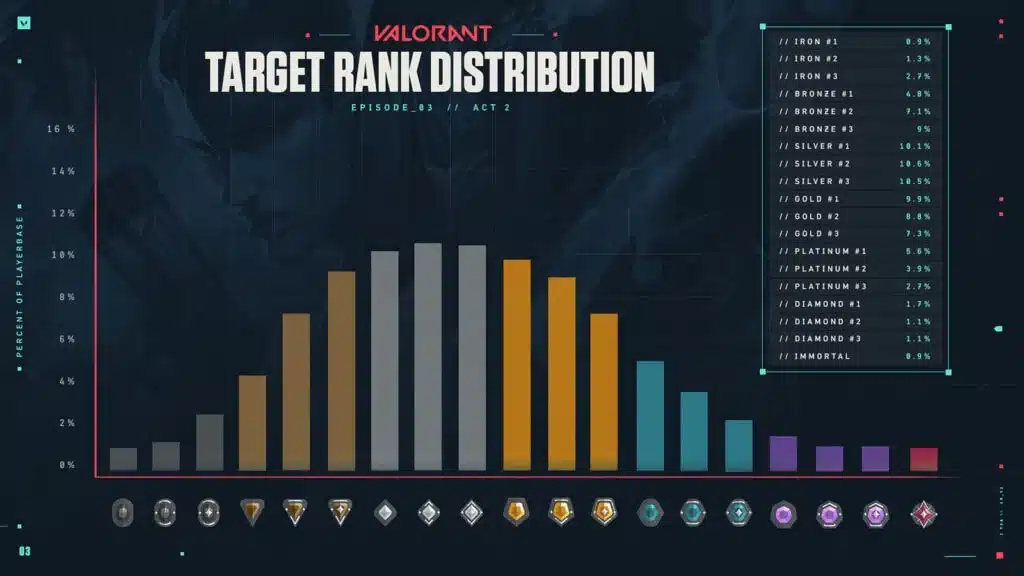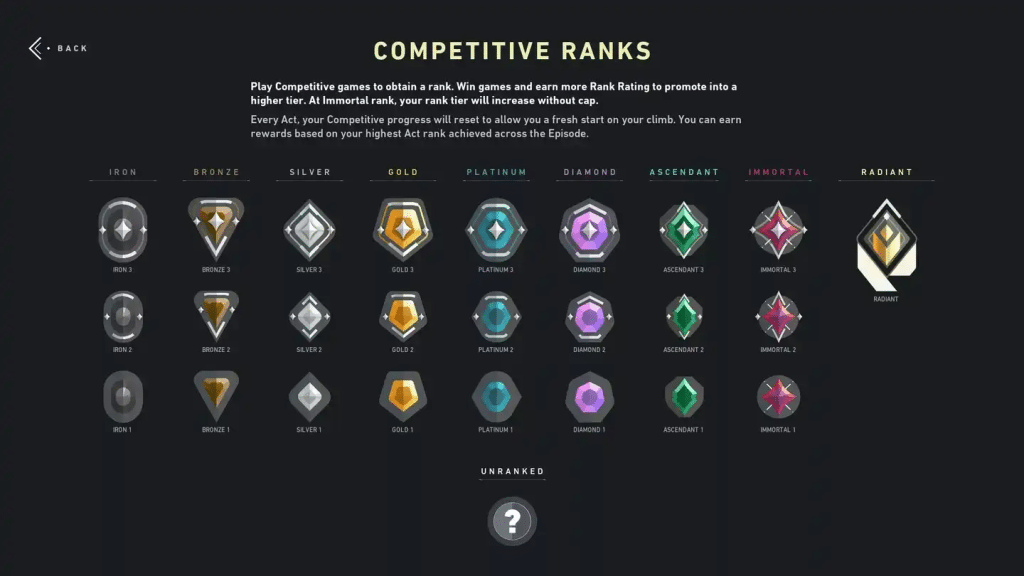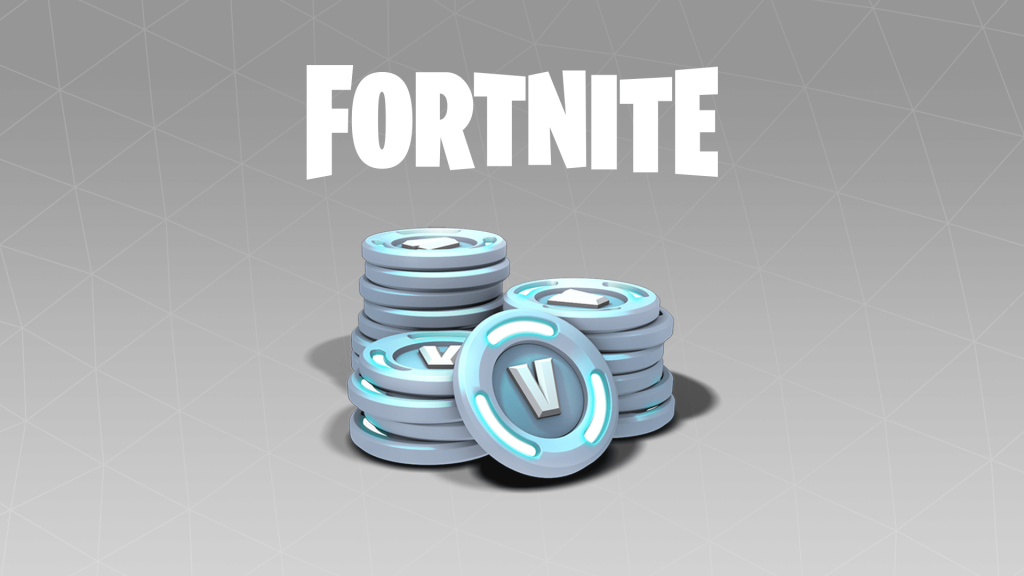Understanding MMR in Valorant
MMR, or Matchmaking Rating, is a hidden score system in Valorant that gauges a player’s skill level and matches them with opponents of similar ability. Unlike visible ranks, which players can view and track in their profiles, MMR is concealed and works behind the scenes to ensure fair matchmaking. For players looking to experience competitive play at a specific level or start fresh, there are options to explore ranked Valorant Accounts for sale.This can be a shortcut for those who want to jump right into high-level gameplay or enjoy matches with a rank that suits their preferences.
What is MMR?
In Valorant, MMR is an internal ranking system that tracks and adjusts based on a player’s performance in each game. This rating is a numerical value that goes beyond visible ranks (like Bronze, Silver, or Gold) to assess how skilled a player truly is, using detailed performance metrics. Every win, loss, and in-game action (such as kills, assists, and objective play) affects MMR to some degree, even if it doesn’t directly impact the rank players see on their profile.

MMR vs. Rank: What’s the Difference?
While ranks represent tiers that are visible and have a progression system from Iron to Radiant, MMR is a hidden metric that serves as the primary determinant in matchmaking. A player’s rank may not accurately reflect their MMR, especially if they are performing exceptionally well or poorly. For example, a Silver-ranked player with a high MMR might be matched against Gold players, indicating that their hidden rating is more advanced than their visible rank suggests.
How MMR Affects Gameplay in Valorant
MMR is crucial to maintaining balance in Valorant matches, as it ensures that each game is competitive and fair by matching players of similar skill levels.
MMR’s Impact on Matchmaking
In matchmaking, the system uses MMR as a primary criterion to create balanced teams. This allows players to face opponents with comparable skill, reducing instances where high-skilled players dominate lower-skilled matches. It’s also designed to prevent “smurfing” (when experienced players create new accounts to play against lower-ranked players) by adapting quickly to players who perform unusually well for their current rank.

How Performance Influences Your MMR
Performance is a key factor in Valorant’s MMR calculation. Winning is essential, but MMR is also influenced by personal performance within each match. For example:
- High KDA (Kill/Death/Assist) ratios often signal skill to the matchmaking system.
- Consistent gameplay improvements (like accuracy and objective control) positively affect MMR.
- Losses can sometimes have a smaller impact if the player performed well individually, indicating that MMR accounts for personal skill in the context of team-based outcomes.
How to Improve MMR in Valorant
Improving MMR requires a strategic approach, focusing on consistency and skill enhancement rather than just chasing visible rank improvements.
Essential Strategies to Increase MMR
- Focus on Objective Play: Completing objectives (such as planting/defusing the spike) can greatly impact MMR, as it demonstrates game knowledge and teamwork.
- Enhance Aim and Accuracy: Practicing aim precision is critical in Valorant, as accurate shots improve individual performance metrics tracked by MMR.
- Play Consistently with a Team: Playing with reliable teammates can improve communication, coordination, and overall performance, which helps boost MMR over time.
Key Factors That Can Lower Your MMR
- Frequent Losses or Inactivity: A series of poor performances, especially against similarly skilled players, can lower MMR significantly.
- Inconsistent Gameplay: Erratic gameplay, with alternating strong and weak performances, can hinder MMR growth. Staying consistent in terms of kills, objectives, and tactics is key.
- Negative Behaviors: Toxicity, intentional throws, or abandoning matches are likely to have an impact on MMR, as these behaviors lead to poor match quality for others.
Common Misconceptions About MMR
There are several myths about MMR that can mislead players, especially those new to Valorant.
Myth: MMR and Rank Are the Same
Although rank is influenced by MMR, the two are not the same. Rank represents a player’s tiered placement (e.g., Bronze, Silver), while MMR is a more complex and sensitive measure that evaluates a player’s skill at a much finer level. It’s why a Silver player with a high MMR might be queued with Gold players, indicating they’re more skilled than their rank alone shows.
Understanding Why MMR Isn’t Visible
Riot Games keeps MMR hidden to discourage players from obsessing over it and focusing on performance rather than a numerical rating. Visibility might create more pressure, especially if players were to see small fluctuations after each match. Instead, the goal is to provide a general sense of skill progression through ranks, with MMR acting as the invisible support.
Tips for Players Focused on MMR
To climb the MMR ladder effectively, players should focus on improving their overall gameplay rather than fixating on visible rank alone.
How to Track and Gauge Your Performance
- Analyze Match History: Observing KDA ratios, win rates, and other metrics can help gauge performance trends over time.
- Use Tracking Tools: Some external tools provide data analysis for Valorant gameplay, offering insight into areas that may need improvement.
Maintaining a Positive Mindset for Long-Term Success
MMR improvement is a gradual process, and it’s essential to avoid burnout or frustration. Focusing on incremental progress, learning from each match, and staying motivated will contribute to a higher MMR in the long run.
FAQs
How is MMR calculated in Valorant?
MMR is calculated based on wins, individual performance metrics, and consistency over time. Factors like kill/death ratios, objective play, and teamwork also influence it.
Does losing affect MMR a lot?
Yes, losing affects MMR, but if you perform well individually, the impact may be smaller. However, frequent losses without improvement can significantly lower MMR.
Why can I play against players of a higher rank?
If your MMR is higher than your visible rank, the matchmaking system may place you with higher-ranked players to match your skill level.
How can I track my MMR?
Riot Games doesn’t provide an official MMR tracker, but you can analyze performance trends via in-game statistics and some third-party tools.
Can toxic behavior lower my MMR?
Indirectly, yes. Toxic behavior that leads to lost matches, penalties, or poor teamwork can negatively impact your MMR.
Why doesn’t Riot Games make MMR visible?
The visibility of MMR could lead to more pressure and frustration for players, as slight MMR changes after each match might cause unnecessary stress.
Conclusion
Understanding and improving your MMR in Valorant goes beyond simply aiming for a higher rank. It involves a consistent focus on individual skills, teamwork, and objective play. With the right approach, players can steadily increase their MMR, enhancing their gameplay experience and ensuring fair, competitive matches. Stay patient, practice regularly, and watch as your hidden MMR rating rises, leading you toward higher ranks and a more rewarding Valorant journey.


